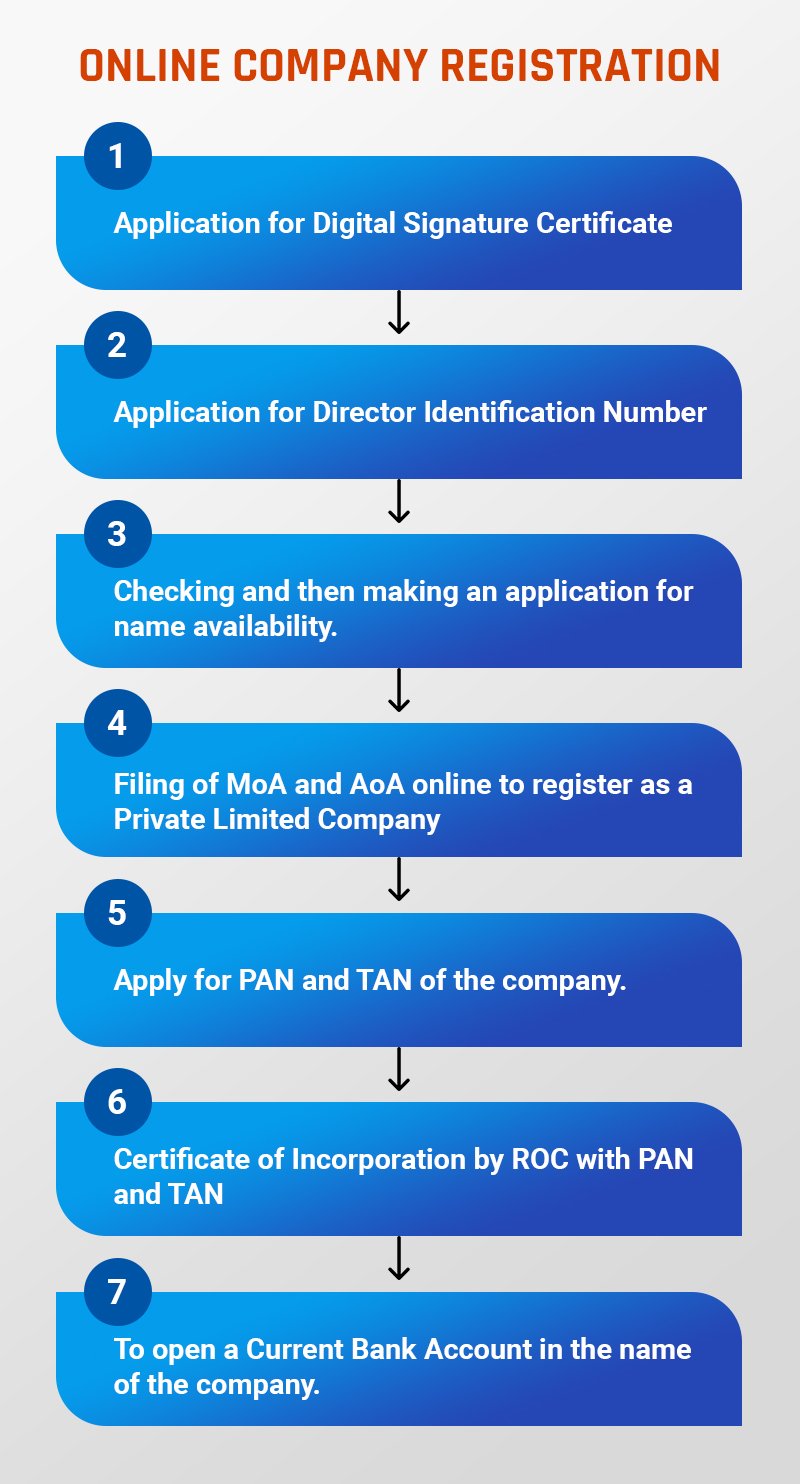Private Limited Company Registration
Not tomorrow, but today, register your private limited company just with JAL specialized professionals, through online process, quick, and affordable service.
Overview on Private Limited Company Registration
Private Limited Company is the most popular corporate entity that is registered extensively in India. It is governed by the MCA (Ministry of Corporate Affairs) and regulated by the Companies Act, 2013 and the Companies Incorporation Rules, 2014.
Setting a Private Limited Company is one of the highly recommended ways to start a business in India. This type of company offers limited liability for its shareholders with certain restrictions placed on the ownership.
- Private Limited Company can have a minimum of two members and a maximum of fifty members.
- Directors have limited liability to creditors.
- If there is any default, the banks or creditors need to sell off only the company's assets but not personal assets.
Benefits of Private Limited Company Registration in India
A registered Private Limited company avails many benefits. Company Registration makes a company genuine and increases the authenticity of your business. Some of the benefits are discussed below:
- Loans can be issued in the name of the company and to make investments in different companies.
- It will be considered as a separate legal entity.
- Directors will have limited liabilities. They will not be personally liable for the company's affairs.
- Tax benefits are available to the directors of the company.
- Right from the time of establishment, the power to hold and dispose of the property is with the company.
- The company will build goodwill for its brand.
- With the help of company body structure, there can be a global reach.
- To set up a platform to deal with suppliers, industries, vendors, and customers.
- A registered company can sue or be sued in its name. The name of the entrepreneur will not be used here.
- It is easy to distinguish oneself from others by entering into a corporate environment.
- You can collect money from the general public to make an investment in the company.
Checklist for Registering a Private Limited Company in India
As defined under the Companies Act 2013, we have to ensure the requirements of checklist:
- Two Directors
- A private limited company must have at least two directors and at most, there can be 15 directors. Among all the directors in the business, at least one must be a resident of India.
- Unique Name
- The name of your business must be unique. The suggested name should not match with any existing companies or trademarks in India.
- Minimum Capital Contribution
- There is no minimum capital amount for a company. A company should have an authorized capital of at least Rs. 1 lakh.
- Registered Office
- The registered office of a company does not have to be a commercial space. Even a rented home can be the registered office, so long as an NOC is obtained from the landlord.
Process for Private Limited Company Registration in India
The process of Private Limited Company Registration is given below:

Check Name of Company Before Doing Private Limited Company Registration
One of the most important steps in Company Registration is to ensure that the company name has not already been taken by another legal entity. We, at JAL, can run a company name search to check the availability of the particular name in India against the MCA and trademark database.
We recommend the businesses to come up with three to four alternative names during the approval stage of Private Limited Company Registration. The final permission is granted by the Ministry of Corporate Affairs (MCA) to approve the name based on the availability of rules and regulations.
It is not necessary to have the name of your company as a brand name. However, if you want to get a trademark over your brand name, check if it has already been taken at http://www.ipindia.gov.in/, or we will help you in checking the brand name availability. In case the brand name is trademarked by some other company, you will need a no-objection certificate from the owner to have it approved in your name.
Documents Required for Private Limited Company Registration
A Private Limited Company Registration in India needs proper identity proof and address proof. These documents will be needed for all the directors and the shareholders of the company to be incorporated. Below is the list of documents needed that are accepted by the Ministry of Corporate Affairs (MCA) to complete the online company registration process in India.
Identity And Address Proof
- Scanned copy of PAN Card or Passport (Foreign Nationals & NRIs)
- Scanned copy of Voter’s ID/Passport/Driver’s License
- Scanned copy of the latest bank statement/telephone or mobile bill/electricity or gas bill
- Scanned passport-sized photograph specimen signature (blank document with signature [directors only])
Important: For the foreign nationals, an apostilled or notarized copy of the passport has to be submitted mandatorily. All documents submitted should be valid. The residence proof documents like the bank statement or the electricity bill must be less than 2 months old.
Registered Office Proof
For online company registration in India, the company must have a registered office in India. To prove admittance to the registered office, a recent copy of an electricity bill or the property tax receipt or water bill must be submitted. Along with the rental agreement, utility bill or the sale deed and a letter from the landlord with her/his consent to use the office as a registered office of the company should be submitted.
Note: Your registered office need not be a commercial space; it can be your residence too.
Comparison of Company Structures
| Particulars | Private limited Company | Limited Liability Partnership | One Person Company |
|---|---|---|---|
| Recommended For | Early-stage entrepreneurs /Growing businesses | Professional service firms | Small business and owned by a single promoter |
| Credibility | High | Moderate | Low |
| Raising Capital | Easy | Moderate | Difficult |
| Employee stock option | Yes | No | No |
| Business growth | High | Moderate | Low |
| Liability | Limited | Limited | Limited |
| Dividend Tax | Yes | No | No |
FAQs













